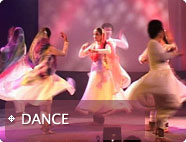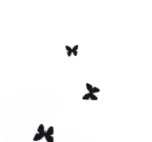About Tehrik-e-Niswan
 Tehrik-e-Niswan (The Women’s Movement) was founded in Pakistan’s southern city Karachi in 1979, the year that heralded a 10 – year long Martial Law imposed by General Zia ul Haque, perpetuating a period well known (amongst others), for its highly discriminatory laws against women. Tehrik-e- Niswan’s plays emerged as a response to these laws and the consequent encroachments on women’s rights. Since its inception, Tehrik-e-Niswan has strived to raise awareness about social and political issues through its theatre. Tehrik-e-Niswan (The Women’s Movement) was founded in Pakistan’s southern city Karachi in 1979, the year that heralded a 10 – year long Martial Law imposed by General Zia ul Haque, perpetuating a period well known (amongst others), for its highly discriminatory laws against women. Tehrik-e- Niswan’s plays emerged as a response to these laws and the consequent encroachments on women’s rights. Since its inception, Tehrik-e-Niswan has strived to raise awareness about social and political issues through its theatre.
Over forty theatre productions based on adaptations and original works form Tehrik-e-Niswan’s rich repertoire. Apart from performing in urban theatre spaces, the group has travelled to distant low-income communities in and around Karachi as well as across the country as part of their outreach programme. Tehrik-e-Niswan has had the privilege of working with international theatre directors from India, (Rati Bartholomew, Golam Sarwar and Prasanna Ramaswamy), Bangladesh (Dr Syed Jamil Ahmed), and Germany (Juergen Zielinski and Stefanie Oberhoff. Apart from this, the group has participated in theatre festivals in India, Germany and across Pakistan.
The year 2009 marked Tehrik-e-Niswan’s thirtieth anniversary. To celebrate the occasion a dance and theatre festival Tlism (Magic) was held in Karachi in March 2009, which showcased six theatre productions and one dance performance from its repertoire. In December 2010, the group is planning for a conference in Karachi, Tees Aur Aik Saal (Thirty and One years) that aims to explore the interconnections between performance art and the politics of gender and class.
Production summary
 Ismat ki Do Kahaniyaan is a compilation of two stories by Ismat Chughtai that address religious prejudices (Kaafir) and societal and domestic oppression (Amar Bayl). Presented in this order the two stories bear an aesthetic continuity in their economical style of presentation and also present a common thread of the author’s indisputable ability to convey very tangible day to day concerns with subtlety and humour. The use of colloquial Urdu and the colourful employment of language drawn from the domestic is an example of the author’s mastery not only over the language but also of identifying concerns drawn from her very environment. Ismat ki Do Kahaniyaan is a compilation of two stories by Ismat Chughtai that address religious prejudices (Kaafir) and societal and domestic oppression (Amar Bayl). Presented in this order the two stories bear an aesthetic continuity in their economical style of presentation and also present a common thread of the author’s indisputable ability to convey very tangible day to day concerns with subtlety and humour. The use of colloquial Urdu and the colourful employment of language drawn from the domestic is an example of the author’s mastery not only over the language but also of identifying concerns drawn from her very environment.
Amar Bayl (The Eternal Vine) touches upon the strategies and domestic politics two sisters employ to gain control over their only brother. The word Amar Bayl refers to a fast growing parasitical vine that has the ability to deplete any tree of its life. In the play it refers to the young second wife that the two sisters bring into the household for their much older brother, who is robbed of his peace of mind by the young woman’s innocent charm and beauty.
Kaafir (The Infidel) touches upon the subject of Hindu – Muslim intermarriage in a playful repartee between two childhood friends; the Hindu Pushkar and the Muslim Munni. In its light hearted manner, Kaafir also brings to light the indelible prejudices about different faiths that are ingrained in individuals from childhood.
The Author
ISMAT CHUGHTAI
Described as the indomitable spirit of the Urdu afsana, (short story) and an innovator in the realm of fiction, Ismat Chughtai was born in 1915 into a middle class family in Badayun India. Her work, emerging in the Thirties and Forties in India was considered bold and out-spoken, when literature was not considered to hold a place in women’s lives.
|
Credits
|
|
|
|
Kaafir
|
|
|
| Pushkar |
Saleem Mairaj |
|
| Munni |
Asma Mundrawala |
|
| Stage and Lights |
Anwer Jafri |
|
| Adaptation and Direction |
Anwer Jafri |
|
|
Amar Bayl
|
|
| Imtiazi Phuppo |
Sheema Kermani |
| Shuja’at Mian |
Saife Hasan |
| Qamar Ara |
Mahvash Faruqi |
| Noor Fatima |
Asma Mundrawala |
| Najji Bua |
Sheema Kermani |
| Stage and Lights |
Anwer Jafri |
| Adaptation and Direction |
Asma Mundrawala |
Previous Performances
7 – 9 June 2008 Arts Council Theatre, Karachi
4 Dec 2009 Arts Council Karachi (in support of the charity organisation JANUM)
Forthcoming
April 2011 Performance in Toronto for Forum for Democracy in Pakistan (FDP)
Reviews
http://jang.com.pk/thenews/jun2008-weekly/nos-15-06-2008/enc.htm#2
Encore, the News on Sunday, 15 June 2008
http://jang.com.pk/thenews/jun2008-weekly/you-17-06-2008/index.html#5
The News YOU magazine 17 June 08
KARACHI: Subcontinental shibboleths
By Hajrah Mumtaz DAWN Newspaper, 07 June 2008
KARACHI: One is not often able to say of a play that the presentation was as skilful as the script was sparkling. Yet this praise is well-deserved by Ismet ki do Kahanian, which opens today (Saturday) at the Karachi Arts Council.
Tehrik-e-Niswan’s hour-long presentation comprises adaptations of the short stories Kaafir and Amar Bel, penned by that doyenne of Urdu literature, Ismet Chughtai. As is the standard of her work, not only does the subject matter hit the nail right on the head but the characters and dialogue are delightfully constructed. More to the point, Tehrik-i-Niswan’s adaptation of the two vignettes are beautifully rendered and manage to bring out the true essence of Chughtai’s genius, along the way displaying the professionalism and maturity of the theatre group itself.
The first story, Kaafir, focuses on the socio-political divisions that exist in the subcontinent as a result of religion – which sounds dreadfully didactic, which the play and the original story are very far from being. What is so appealing about Chughtai’s work is that she presents the faults and foibles that exist in all of us – that we are all far too familiar with, were the truth to be told. But she uses language so spontaneous, so compelling and playful, that her comments invite empathy rather than judgement. It therefore goes to the credit of the director Anwer Jafri, who also adapted Chughtai’s story into the script, that he retained all the charm of the original work.
Salim Meraj and Asma Mundrawala, who play the Hindu Pushkar and the Musalman Munni respectively, are comfortable and convincing in their roles. The dramatic device of telling the story of the subcontinent’s quirks through children may not have worked had the actors not been so competent, but Meraj and Mundrawala turned in excellent performances. The switch between adulthood and childhood, expressed through subtle shifts in body language, expression and posture, are accomplished with deceptive ease.
(And, one must say, the moral high ground taken by Muslims appears in a new light when discussed through children and their understanding!)
The second piece in the performance, Amar Bel, is similarly beautifully directed and presented. The plot is such that it will strike a chord with all those who have observed the rather peculiar relationships enjoyed by women in the subcontinent, and the manner in which men’s lives are governed by them.
This piece has been adapted from the original and ably directed by Asma Mundrawala. Along with Mahvash Faruqi who plays Qamar Ara, Mundrawala also plays the role of Noor Fatima, one of the sisters of the widower Shujaat Mian (Saife Hasan), who arrange the second marriage of their only and beloved brother. While saying any more would spoil the plot, suffice it to say that the ensuing drama would be sadly familiar were it not for Chughtai’s sparkling language and spot-on insight. Sheema Kirmani, meanwhile, plays the roles of both Imtiazi Phuppho and Najji Bua, the former perhaps the character through which Chughtai speaks.
In this sequence, it is the chemistry between Mundrawala and Faruqi that is so striking, bringing to life not only the two sisters and their relationship, but also the soul of the middle-class Muslim women of certain situations that the characters represent.
The direction in both pieces is good, while the set and lighting design by Anwer Jafri is effective. Subtle changes in the light provide counterpoints to the stories unfolding on stage, and add depth to the performance without appearing over-bearing. It is rare to walk out of a performance smiling, but Ismet ki do Kahanian allows this. The play will run from June 7 to 9, with tickets available from Agha’s and the venue, and really ought to be seen.
|










